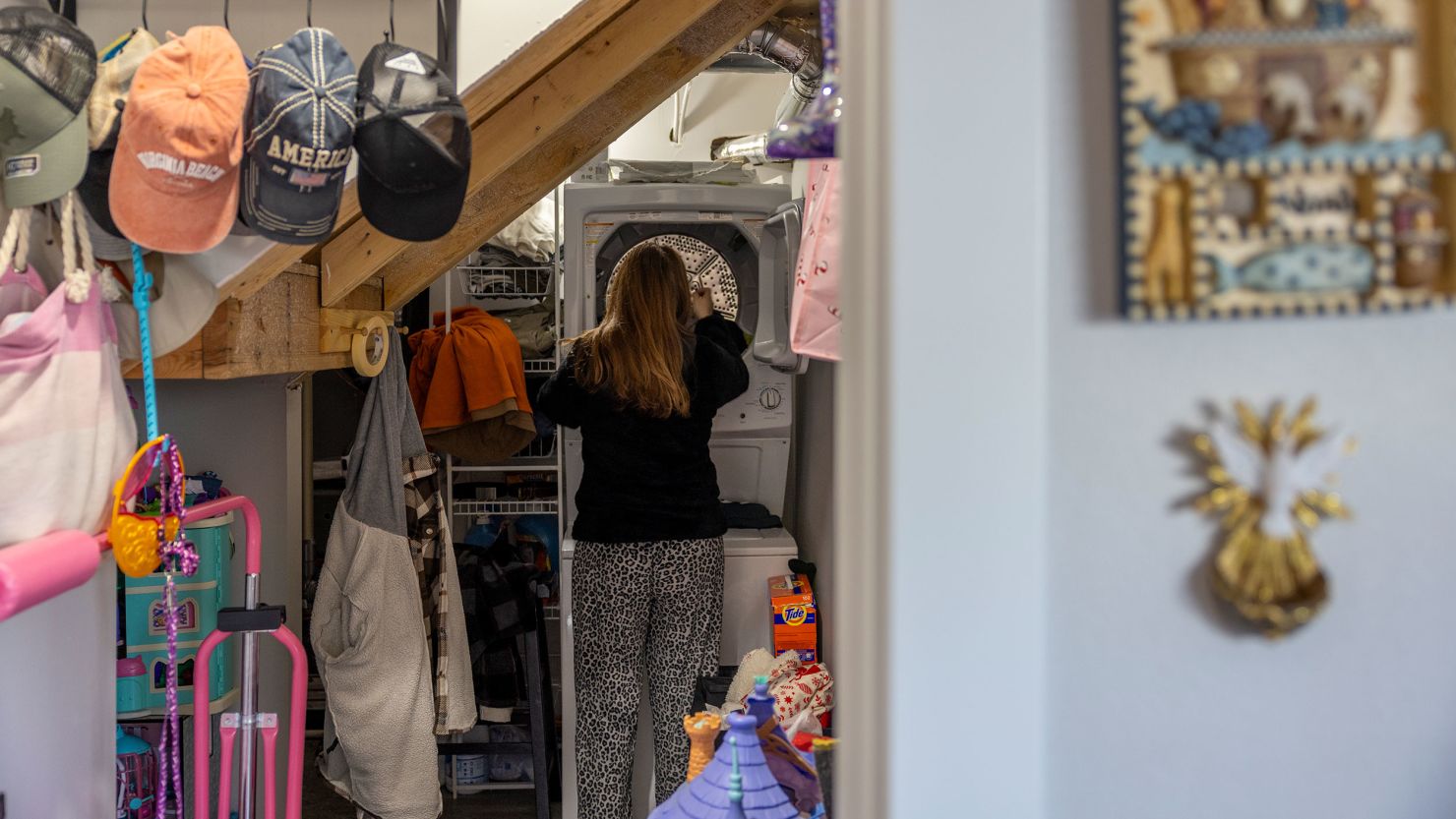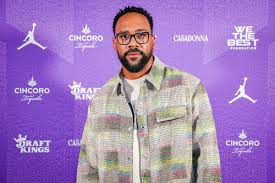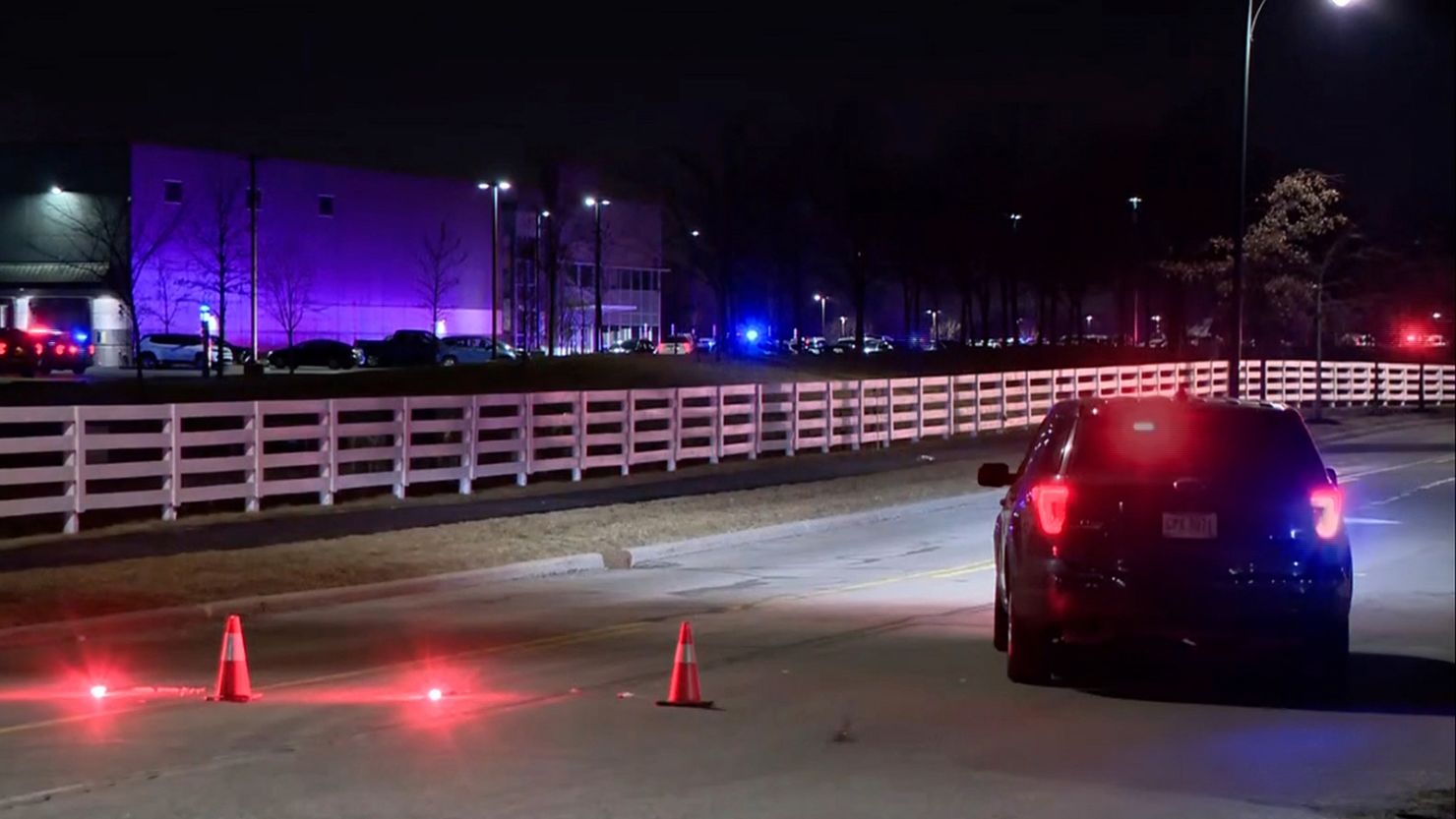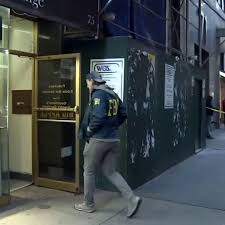Susana sat her teenage sons at the dining room table after Donald Trump’s latest election win.
It was time to reveal a secret.
She and her husband, Carlos, had hidden it from the boys for years. They didn’t tell them why the family always drove when they went on vacation. They hadn’t explained why they never traveled to Mexico, where many of their loved ones live.
The parents even stayed quiet when their younger son, 13-year-old Andrés, repeatedly declared during the 2024 presidential campaign how much he wanted Trump to win.
But after the election results were clear, Susana and Carlos opened up to their sons. The parents explained that they’re undocumented, and that things could change soon for their family. The news came as a shock for the boys, who were born in California and are US citizens.
“They had no idea that we didn’t have papers,” Susana says. “But if one day something happens to us, we don’t want them to be taken by surprise.”
Telling the boys was an important first step, she says. Now a tougher decision looms.
As Trump’s return to power nears, Susana says his mass-deportation promises are forcing her family to face a question she hoped they’d never have to ask: Should they leave the US on their own, before it’s too late?
It’s a decision that Susana says gets more difficult by the day.
She agreed to share her family’s experience with CNN. But to protect their safety, she asked that they be identified by pseudonyms, that their faces not be shown and that the location of their home not be revealed.
“We have always been afraid,” she says, “but we’re even more afraid now.”
Her younger daughter doesn’t know the risk their family faces
A glance across her living room on a winter afternoon reminds Susana how hard it would be to go.
Their 6-year-old daughter, Jessica, leaps joyfully around the house.
“Happy happy happy!” Jessica sings.
“¿Por qué estás tán happy?” Susana asks, sprinkling a bit of English into her question about why Jessica is so full of glee.
“¡Porque hoy tengo homework!” Jessica says — and she actually means it. Jessica loves it when her first-grade teacher gives her assignments, and she loves to share the lessons she’s learning with her parents. At night she practices pronouncing English words by reading out loud to them. A leadership award she won at school is proudly posted on the refrigerator door.
She’s thriving, and her teenage brothers are finding their path, too. It’s what Susana and Carlos dreamed would happen. “Everything that we do is for them,” Susana says.
More than 4 million other children across the US are in a similar situation, according to Pew Research Center estimates. They’re US citizens, but their parents are undocumented immigrants who could soon be targeted in Trump’s promised crackdowns.
“We have to think very hard about whatever decision we make, because it’s going to be very drastic for our children,” Susana says. “They were born here. They only know life here. They don’t know life in Mexico.’
Susana and Carlos haven’t told Jessica about the risks their family is facing.
“She’s too young,” Susana says. “She’d tell everyone.”
What’s more, it’s a relief to hear Jessica talk so much about how happy she is. Not long ago, the little girl’s conversations were fixated on something their family never expected — a loss that changed them forever.
They already lost their home once
The signs of what happened at their house several years ago are no longer visible. But Susana still sees them.
The three-bedroom townhome is immaculately clean, with gleaming kitchen countertops and a nicely finished floor. Wine racks on the wall are filled with sparkling cider in case the kids ever want to join their parents in a toast.
This is where Jessica took her first steps, and where 13-year-old Andrés and 15-year-old Carlos Jr. grew from giggly little boys to video-game loving teens.
A collection of photos Susana’s sister sent them fills a big wooden frame above the fireplace that says “FAMILY” in the center.
But Susana knows there are so many things that aren’t here anymore. Nearly all the mementos from her children’s early years are gone. There are no photos from baptisms and first communions, and none of the toys they treasured as kids.
Around 2 a.m. on a fall day several years ago, Susana says, a fire broke out in a neighbor’s garage.
Her nephew, who was visiting, saw the flames and called 911.
“They told us to get out right away, because it could explode,” Susana says. Her nephew and sons ran out the back door. The fire grew, and Carlos tried in vain to save his car and the tools he kept inside it. Susana wrapped Jessica in a blanket and rushed out the front door with her daughter in her arms.
She assumed they’d all be back inside the house soon. Surely, she thought, firefighters would be able to stop the blaze before it spread. She was wrong.
The fire started out small, but swiftly engulfed their entire building.
“I never imagined everything would burn in just 30 minutes,” Susana says. “Ashes were all that was left.”
She worried her kids would never recover. Then they said something that surprised her
It wasn’t the first time her family had to rebuild their lives, and Susana fears it won’t be the last.
“We’ve started from zero so many times,” she says.
They had nothing when they came to the US in 2006 and settled in California. Moving to Iowa years later also forced them to start anew.
And the devastation of the fire, she says, was a trauma she worried her children would never overcome.
For weeks, Jessica sorrowfully told everyone she met that all her toys had been destroyed.
At the time, Susana was ready to leave their neighborhood behind and find a different place to live. The house was already starting to feel too small for their family of five. And losing it was a nightmare she wanted to forget.
But then her sons said something that surprised her. They wanted to stay.
“They said, ‘This is where all our memories are,’” Susana says.
She thought of the nearby park where they rode their bikes with friends, and how safe the neighborhood felt. And she realized something else — rebuilding the house and returning would teach her children an important lesson.
“I want them to face their fears. I don’t want them to be people who run away from what scares them,” she says.
It took nearly two years for the house to be rebuilt.
Susana and Carlos have just finished paying off the mortgage, and it’s finally starting to feel like home again.
But instead of feeling relieved to own their home, these days, they’re feeling worried they’ll have to leave it behind.
“We don’t know the future,” Susana says. “We don’t know if we are going to have to leave and start from zero again.”
She sounds calm and matter-of-fact as she talks about it. Now is not the time to cry, she says. It’s time to make sure backup plans are ready.
She’s racing to get passports for her kids as Trump’s presidency looms
Susana can still feel the sting of the notary public’s words from the day when they got the paperwork signed.
The document designates a family friend to temporarily care for their children if Susana or Carlos are detained or deported.
The day they filled it out was devastating, Susana says, especially when the notary summarized the form.
“It sounded so ugly, like we were giving them up for adoption,” she says. In reality, Susana says they’re taking every step they can to keep their family together. She hopes the paperwork would ensure that the kids can be flown to Mexico to join their parents, rather than getting stuck in the US foster care system.
She’s also racing to get US passports for the kids. They’d need them to travel to Mexico. And she’s worried Trump will act on his promise to end birthright citizenship.
“We are getting more and more worried. We need to have everything in order now,” she says.
But even what should be a simple bureaucratic step has been complicated. The fire that destroyed their home also destroyed the children’s birth certificates. The new copies from California still haven’t arrived. The delay makes Susana anxious, but like so many things, she knows it’s out of her hands.
It’s one more unexpected way the fire has changed her family and their circumstances. The blaze and its aftermath were devastating, she says, but some changes in their lives have been positive, too.
They learned not to worry so much about material things, she says, and to appreciate what it means for their family to be together.
“It made us stronger,” Susana says.
And now, wherever they are, they always look for the exits.
In Iowa, they built a better life
Andrés stumbles into the living room early on a weekday morning.
“Go to the bathroom and fix your hair,” Susana tells him, laughing. The 13-year-old runs his fingers through his hair halfheartedly, grabs his backpack, and gets ready to head out the patio door.
It’s the same exit he ran out a few years ago as the fire was spreading. But today, he’s rushing for a different reason. The bus that will take him to middle school is rounding the corner.
Before he can get far, Susana pulls him back inside and makes the sign of the cross over his head and recites a blessing. She kisses his cheek as she says “amen.”
For years after the fire, Susana was afraid to leave her children at home.
When the boys were toddlers, it was fear for their futures that inspired Susana and Carlos to move from San Jose, California, to the Des Moines area, where a family member lived. They hoped the smaller city would be a better place to raise their family. And it has been, Susana says.
Over the years, visits to the Iowa State Fair have become a highlight of their summers – the giant turkey legs, the carnival games, the photo booth where the kids dress up like cowboys.
“This is where we all want to live,” Susana says.
But even before the election, they started to feel unwelcome
But Carlos and Susana started to feel uneasy last year when Iowa lawmakers began debating a state measure that would allow local police to arrest some undocumented immigrants and give state judges the power to order deportations.
“That’s when our way of thinking started to change,” she says.
The law passed, and Iowa’s governor signed it. But a court blocked the measure before it went into effect. Still, Susana fears it’s only a matter of time before the law or similar measures become a reality that makes life unlivable in the state her family’s come to love.
During the election, “Trump-Vance” signs popped up all over their family’s neighborhood. A nearby house still has one in its yard.
Susana passes it every day when she heads out to pick up her kids from school, and her mind fills with questions.
How bad will it be this time?
Will he do what he’s promised?
How can they support that man?
“He thinks that we give nothing to the country, but we pay taxes, and we work,” Susana says.
“Life is not easy for us. They think that we came to invade, or to get things for free. We haven’t asked for anything. We haven’t stolen any jobs. The work that there is, is the work that we do. We live off of what we earn.”
She thinks of the Latinos who supported Trump, and how they must not have dealt with the difficulties of being undocumented.
During the campaign, her own son said he liked what Trump would do for the economy. But since their recent conversation at the dining room table, Andrés has stopped mentioning Trump’s name. Susana says he seems more somber now – and when asked what he thinks about his family’s future, he says only, “I’m scared.”
To lighten the mood as they weigh what’s next, the family has joked about how to make sure no one eyes them with suspicion.
One of her sons suggested flying American flags outside their home — and wearing Trump T-shirts.
‘We don’t know what we’d be returning to’
When they first came to the US after their wedding in 2006, Carlos and Susana hadn’t planned to stay long. Carlos hoped his work as a painter would help them save enough to buy a car, and to fix up a house he’d bought in their hometown. But as their family grew, returning to Mexico seemed increasingly out of the question.
In Iowa, Carlos learned how to install floors, hang drywall and rehab historic buildings.
“Here, you had to do everything,” he says.
Susana’s held down a number of jobs, too. For years she worked as a janitor at a local Target store during the day, then cleaned a movie theater while her children slept at night. She’s also worked as a cashier at a shop that sold Mexican products, at a pizzeria and at a bakery.
Now she occasionally cleans homes and offices when a friend calls and asks her to fill in. As an undocumented immigrant, it’s becoming much more difficult to find steady work, she says, because employers are more likely to require documents she doesn’t have. After Trump takes office, Susana has no doubt the scrutiny will intensify.
She and Carlos have met with lawyers multiple times to see if there’s a way to legalize their immigration status. The answer is always the same, she says.
“We are in the shadows, and there’s nothing we can do,” Susana says.
Meanwhile, in the years since their departure, their home state of Jalisco, Mexico, has become a hotbed of cartel activity. Curfews imposed by criminals, not the government, sometimes keep residents of their town inside at night.
“The year we left is when all the ugliness started. … When my mom comes to visit us here, she says it’s very dangerous there, and everything is very hard. It’s not like it was before,” Susana says.
“Even we don’t know what we’d be returning to.”
And her children would be even more lost, she says. Susana thinks about what it was like for her to come to the US.
“It was very hard for me,” she says. “If they have to leave one day, they will see how difficult it is.”
She worries her kids would fall in with the wrong crowd and get drawn into a life of crime, or end up in the wrong place at the wrong time when violence breaks out.
Carlos worries about that, too.
“In Mexico there’s so much insecurity,” he says. “People are going to offer them rifles, guns, it would be so easy for them to fall into that, because they’re so young.”
Many of their friends are also weighing whether to leave
But when it comes to what’s next for their family, Susana’s husband sees the situation differently.
“We’re staying,” Carlos says when asked about the family’s plans. “We have to stay to see what happens, until the end. You can’t leave without knowing.”
“But if we see that the situation is getting very difficult, we are going to leave before they deport us,” Susana counters.
She doesn’t want her family to face another traumatic situation. And leaving on their own terms, she says, would give them time to settle their affairs and protect the assets they’ve worked so hard to earn.
She says many of her friends agree. Whether to leave, and when, keeps coming up whenever they get together.
“It’s always the focus of the conversation. It’s what we’re losing sleep over. Most of us have this fear. We are asking ourselves, what are we going to do with what’s coming? We are preparing ourselves to leave, depending on how bad things get,” she says. “If it’s going to be very terrible, we can’t live like this, with this fear.”
Already uncertainty is putting pieces of their life on hold – the vacation they’d hoped to take to Disneyland, the limo ride Susana wanted to get Carlos Jr. for his latest birthday.
“We can’t make many plans,” Susana says.
Sometimes leaving the US seems inevitable. But she’s still torn.
The US economy makes so much possible, she says, while in Mexico options are much more limited.
Carlos Jr. wants to be an architect someday. Andrés plans to study business and automotive repair when he gets to high school. Jessica dreams of becoming a doctor or a teacher.
Susana wants her children to have a chance to pursue whatever career path is right for them.
“We’ve been fighting so hard to be here,” she says. “We can’t allow ourselves to be defeated so easily.”
And she still doesn’t want her children to run from their fears. But the fire also taught her something important: If you don’t get out in time, you can lose everything.
She sees a powerful message in an unexpected place
Susana and her family didn’t lose everything when their house burned down.
Before the bulldozers came and pushed away the charred wreckage of their home, Susana made her way to the area that used to be her closet and discovered a few treasured items remained.
The baby blankets for all three of her children were blackened with ashes, and they reeked of the chemicals firefighters used to stop the fire from rekindling. But they were still intact, and Susana knew she had to take them.
To some, they’d look like rags. But in those pieces of fabric, Susana saw her family’s story.
The hand-embroidered blanket with red and white lace trim came from Mexico. The blankets with blue and pink stripes once swaddled Carlos Jr. and Andrés at a hospital in San Jose. The gray blanket with pink footprints came from the hospital in Des Moines, where Jessica was born.
So much has happened since the days when her children were babies in her arms. But her desire to hold them close and keep them safe has only grown.
Susana scrubbed the blankets over and over after she found them. Some of the colors faded, but eventually, most of the ashes washed away. Today faint gray stains on the fabric are barely visible to the naked eye.
Looking at the blankets now, Susana sees a message she needed to hear.
“There is always something that can be saved,” she says, “even when it seems like there’s no solution.”
Susana isn’t sure what’s next for her family, but she knows she’ll do whatever she can to protect them.
And she knows that while she waits for answers to so many big questions, she’ll wash these tiny blankets again and again.



